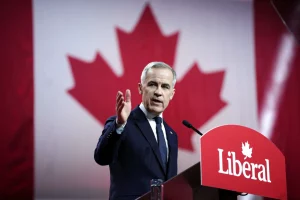Possible tax increases in upcoming Budget from Labour party.
Starmer warns UK to brace for bad news on October 30.

In just a few weeks, we will witness a historic event as Chancellor Rachel Reeves presents the Labour party's first budget in 14 years. The anticipation is high and everyone is speculating about what measures might be announced. Of course, the government officials are keeping their cards close to their chests, as many decisions are yet to be made. However, one thing is for certain - this budget is going to be tough.
Prime Minister Keir Starmer himself has warned the nation to brace for some pain, during a speech given in the garden outside Downing Street in August. Naturally, this has sparked a lot of discussion about who will be most affected by this pain. The government has ruled out certain avenues, which narrows down the possibilities for what we can expect on October 30th. However, much of the attention has been focused on two potential sources of revenue - inheritance tax and capital gains tax.
The Labour manifesto before the election promised to not increase taxes for "working people". This promise, while well-intentioned, was rather vague as it did not specify who exactly falls under the category of "working people" and which taxes would be exempt. However, it did mention some taxes that would not be raised, such as VAT, national insurance and income tax. The Prime Minister has also stated that he will not increase corporation tax, which limits the government's options for generating revenue.
Capital gains tax is a tax paid on the profit made from selling something. This includes personal possessions worth more than £6,000, property that is not the main home, and business assets. It also applies to shares that are not held in an ISA or PEP. The potential increase in this tax has caused concern among landlords, with reports of them rushing to sell off their properties and shares before any potential changes are made. There have been speculations that the higher rate for this tax could increase from 20% to 45%, or even up to 39%.
Inheritance tax is another subject of discussion, as it is paid on the property, money and possessions of someone who has passed away. However, it only affects estates worth more than £325,000 and those who leave everything above that threshold to their spouse, civil partner or certain charities. Any changes in this tax would only impact a small portion of the population, as in the previous year, less than 4% of estates in the UK had to pay it.
Aside from these two taxes, there are only a few other options for the government to raise funds. There has been speculation about a potential increase in national insurance for employers, despite the manifesto stating that it would not be raised for "working people". There have also been talks about changes to pension tax breaks, which could generate at least £10 billion per year. Furthermore, there are questions about potential changes to the fiscal rules that determine how much the government can borrow to fund public spending.
In conclusion, the upcoming budget is highly anticipated and it is expected to be challenging. The government has limited options for generating revenue and any changes to taxes or fiscal rules will impact a small portion of the population. However, we will have to wait for the Chancellor's speech on October 30th to know the full extent of the measures. Until then, we can only speculate and hope for the best.










